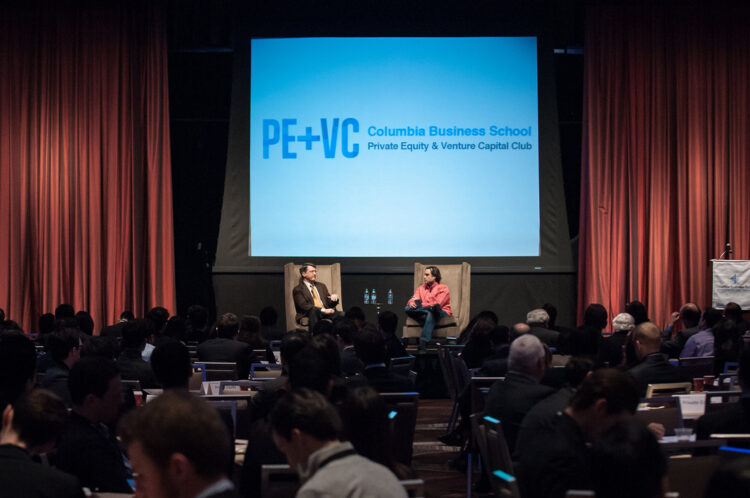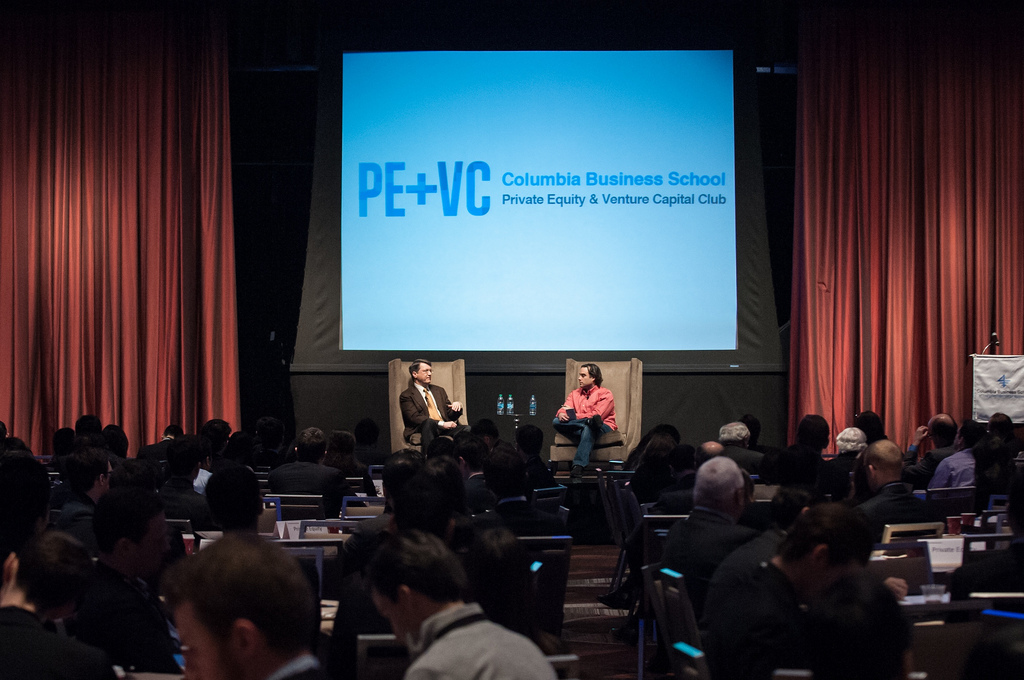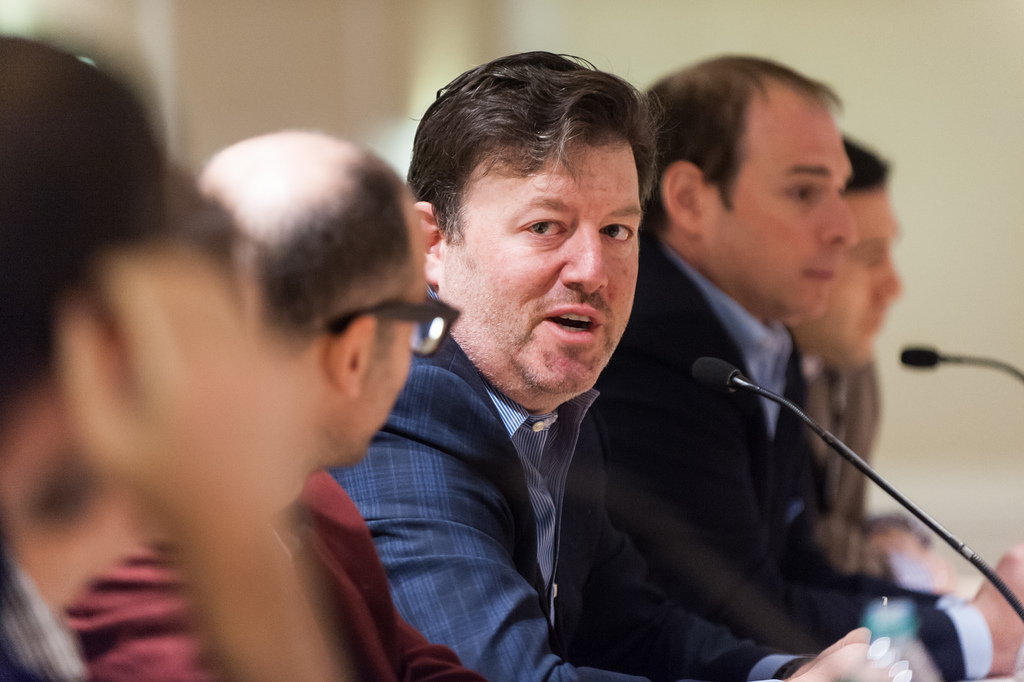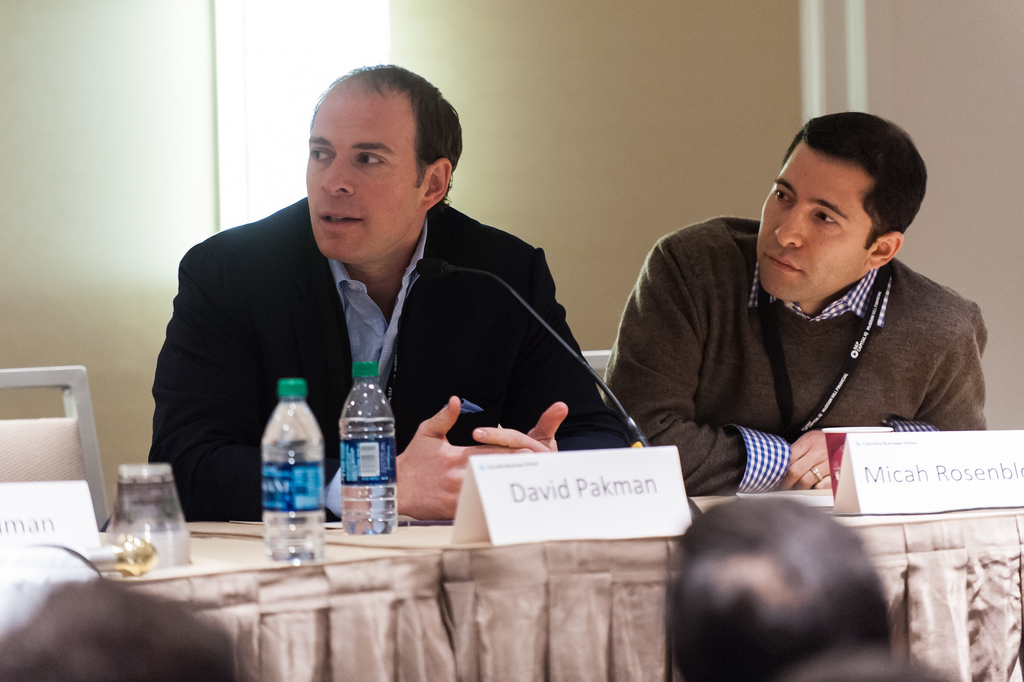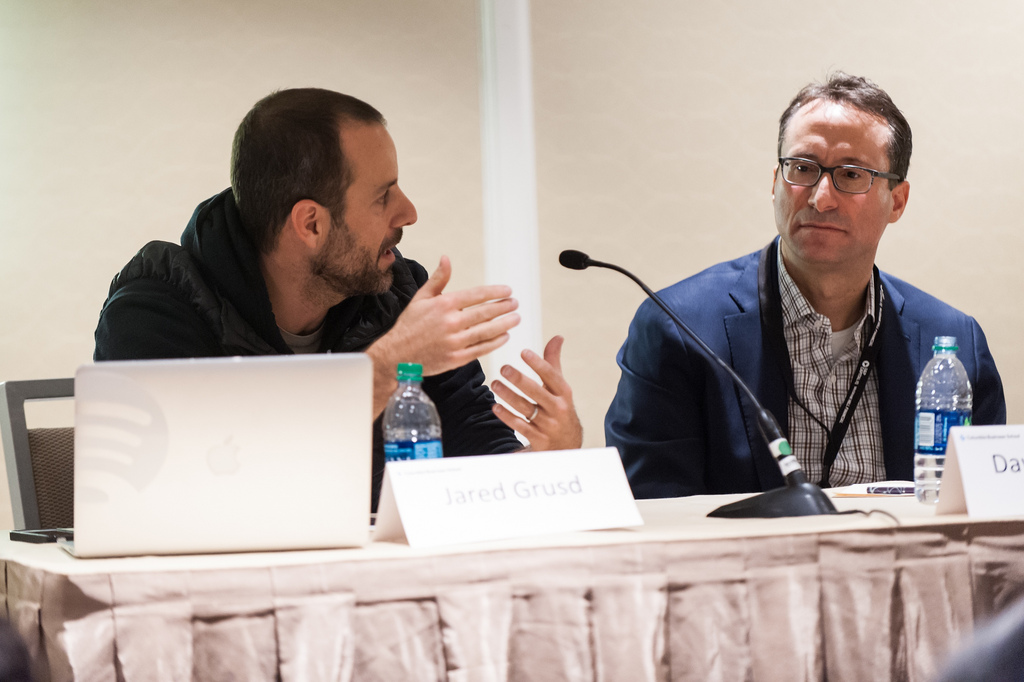Columbia Business School held their 20th Annual Private Equity Conference last week and, of course, there was a preponderance of Columbia MBA graduates and current MBA candidates. Does the degree make a difference? Listen to what they have to say about that and everything from what it takes to get funded to New York as a tech epicenter.
Click here for the next page from your mobile or tablet
All images courtesy of Columbia Business School PE Program
Peter Barris (MBA, Dartmouth), Managing General Partner of NEA: “We hire pre-MBAs for two year stints. Then they get into the Columbia Business School. We also hire people out of our (portfolio) companies. Consider going to work at a startup. We look for people who work at our startups.”
Micah Rosenbloom (MBA, HBS), Founders Collective: “MBAs want to start companies. Bankers want to start companies. New York is open in that respect. Not everyone has to come out of Google.”
Stuart Ellman (MBA, HBS ’92), RRE Ventures: “It has less to do with education these days. Are pedigrees important? Jon Steinberg (BuzzFeed) went to Princeton and Columbia. Bre Pettis (MakerBot) was a 4th Grade teacher. What people achieve is much more important.”
On what investors look for in a startup:
Micah Rosenbloom: “Can you capture the imagination of the investor? That’s what it comes down to.”
David Pakman, Venrock, focuses on the team’s motivation. They’re all smart. I want to know how many times they will run through a brick wall. Will they be around to build something, or take a buy out and buy an apartment? Who wants people who want to be unicorns? We want people who are in it for something else – entrepreneurs who want to build iconic companies… At Apple, we tested with a small group. If at least 20% of the people didn’t hate it, it didn’t move forward. We were looking for the outliers.”
Micah Rosenbloom: “If one single person is pounding the table, we move forward. There’s so little data about early stage. It’s impossible to find the outliers.”
David Aronoff (MBA, HBS), Flybridge Capital Partners: “People we’ve backed run the gamut. We want to know if they can they motivate investors. Can they build a team and hire people they should not have been able to hire? We asked (Bre Pettis) why everyone will need to have a 3D printer in their home and he answered, ‘because they’re awesome.’ We passed. He was right.
David Pakman: “The only way to find the real outliers is when at least ½ the group says no. And when everyone says it’s impossible to connect every single person on the planet on one social network? No, that’s not possible.
Stuart Ellman: “The X Factor for VC’s is who can figure out who is the next Bre Pettis or Mark Zuckerberg…
Everything you do as an entrepreneur will follow you for the rest of your career… It will follow you for the rest of your life.”
Jared Grusd (MBA, Columbia), Spotify: (On VCs) “The one thing we have, besides capital, is our reputation. The mirror goes both ways.”
Micah Rosenbloom: “There’s a category called ‘alchemy.’ If something looks really interesting, but there’s something missing, we’ll try to help. But you need the holy trinity.”
On the difference between the East Coast and West Coast:
David Aronoff: “New York is inherently more conservative than the West Coast. The West Coast investors want to hear about markets that don’t exist, not markets that do exist. In NY they ask, ‘what market are you going after and how big is it?’ New York is good at the app layer, financial services and Big Data. They take a few years to develop. New York is here. New York has the fastest growth rate, second only to Silicon Valley. It won’t be long before we have $10 billion exits, then $20 billion.
We need to stop being apologists. We shouldn’t always be compared to the West Coast. “
Stuart Ellman: “In 2007, there were a lot of skeptics. It took a lot of convincing to get people to invest. In 2011, there was more interest. Now, it’s not a question.
Ten years ago, if you were a great entrepreneur, you needed to be in Silicon Valley. Over the last ten year, (a lot has come out of the New York) primordial soup. To me, Chicago should have a vibrant startup community. Netscape came out of the University of Illinois. Atlanta should have a vibrant startup community. But they don’t: it’s New York, Silicon Valley and Boston…
David Aronoff: “The X Factor in New York is the community.”



